Review: Businessabc AI Global Summit 2025
Maria Fonseca
Mon Jun 30 2025

The Businessabc AI Global Summit 2025 brought together leading voices from across business, academia, government, and the arts for two immersive days of discussion, performance, and insight. Held at the elegant Kensington Town Hall, this ambitious and visionary gathering—produced by Ztudium and BusinessABC through the joint leadership of Dinis Guarda, Dilip Pungliya, and Sonesh Sira—offered a panoramic exploration of artificial intelligence as a transformative force in shaping a more inclusive, creative, sustainable, and human-centred future.
What does it mean for artificial intelligence to serve humanity? After two days immersed in visionary ideas, dynamic performances, and rich cross-sector dialogue, that question still resonates. As we confront the accelerating pace of technological change, it becomes ever more vital to ask not just what AI can do, but what kind of future we want it to help create—one that is inclusive, creative, sustainable, and profoundly human.
Setting the Scene
Kensington Town Hall provided a dignified and inspiring venue, its historic charm matched by the futuristic energy of the Businessabc AI Global Summit event. A landmark in West London, the Town Hall has long served as a hub for civic life and visionary forums—making it a fitting setting for a summit that explored the future of intelligence, creativity, and humanity itself. With a diverse audience of academics, business leaders, researchers, technologists, creatives, students and government representatives, the summit fostered a rare cross-sector dialogue grounded in innovation and ethical reflection.
Live AI demonstrations, interactive exhibitions, and original artistic performances punctuated the event, including appearances from Leo.ai (Leonardo da Vinci AI Agent) and Ada Lovelace AI Agent, both developed by Gonçalo Pereira, CTO of Ztudium. A highlight was the live concert performance by Desdemona, the humanoid robot and AI singer, in musical collaboration with Dr. Ben Goertzel, CEO of SingularityNET.
Themes and Highlights
Day One opened with inspiring talks by Dinis Guarda, and Prof. Vijay Pandurang Bhatkar, the architect of India’s supercomputing initiative and Chancellor of Nalanda University. Their reflections set the tone for a summit that would navigate between technical innovation, philosophical inquiry, and global equity.
A standout keynote was delivered by Dr. Annette Doms' digital twin, exploring the boundary between imitation and authenticity in AI-generated art. As Dr. Doms asked: “AI can paint like Van Gogh, write like Goethe… but is this art, or just perfect imitation?”
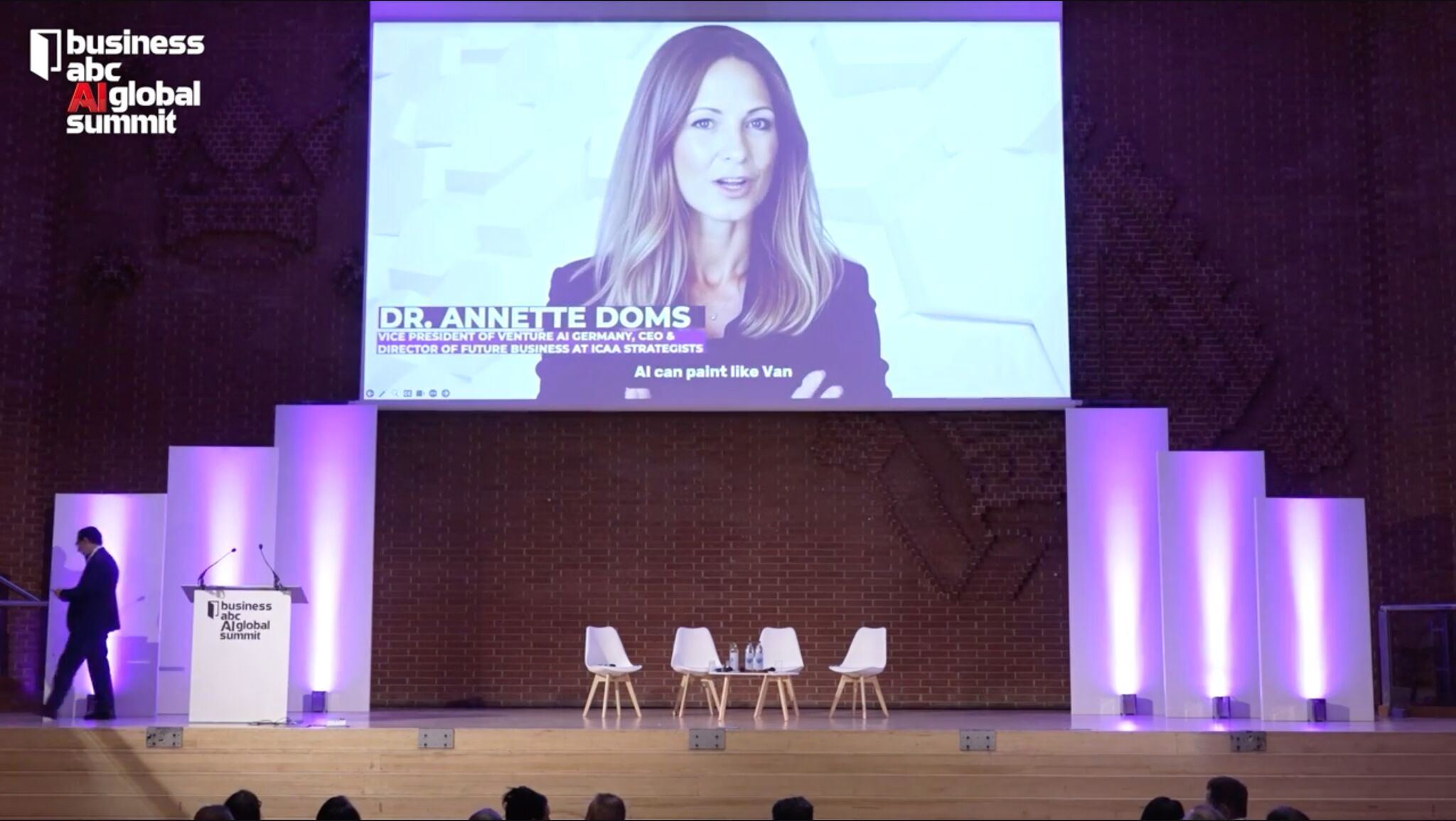
Panel discussions provided diverse, sometimes contrasting perspectives. Nick Rosa urged urgent adaptation in the face of technological disruption, comparing AI to the historic transition from horse-drawn carts to automobiles. In contrast, Baroness Manzila Pola Uddin offered a grounded warning, invoking the digital divide exposed during the COVID-19 pandemic and the ongoing lack of access to technology in underserved communities. Her call for equity and digital inclusion deeply resonated with my own work in education and social engagement.
The education panel, chaired by Dr. Wambui Kahara (H.C.) and featuring Professor Xiaolan Fu of Oxford University, addressed how innovation can thrive even in low-resource contexts. Fu's insight—that innovation need not be capital-intensive—was refreshing and deeply relevant. Questions from the audience highlighted concerns about AI’s impact on childhood education and development, prompting important conversations about responsibility and regulation.
Other key figures included:
Lord Timothy Clement-Jones, who discussed the potential role of Universal Basic Income in an AI-driven economy.
Dr. Milind Pande, Pro-Vice-Chancellor at MIT World Peace University, emphasizing peace and ethics in education.
Rhona Morrell and Janet Adams, who highlighted AI’s environmental impact and the open-source AGI movement.
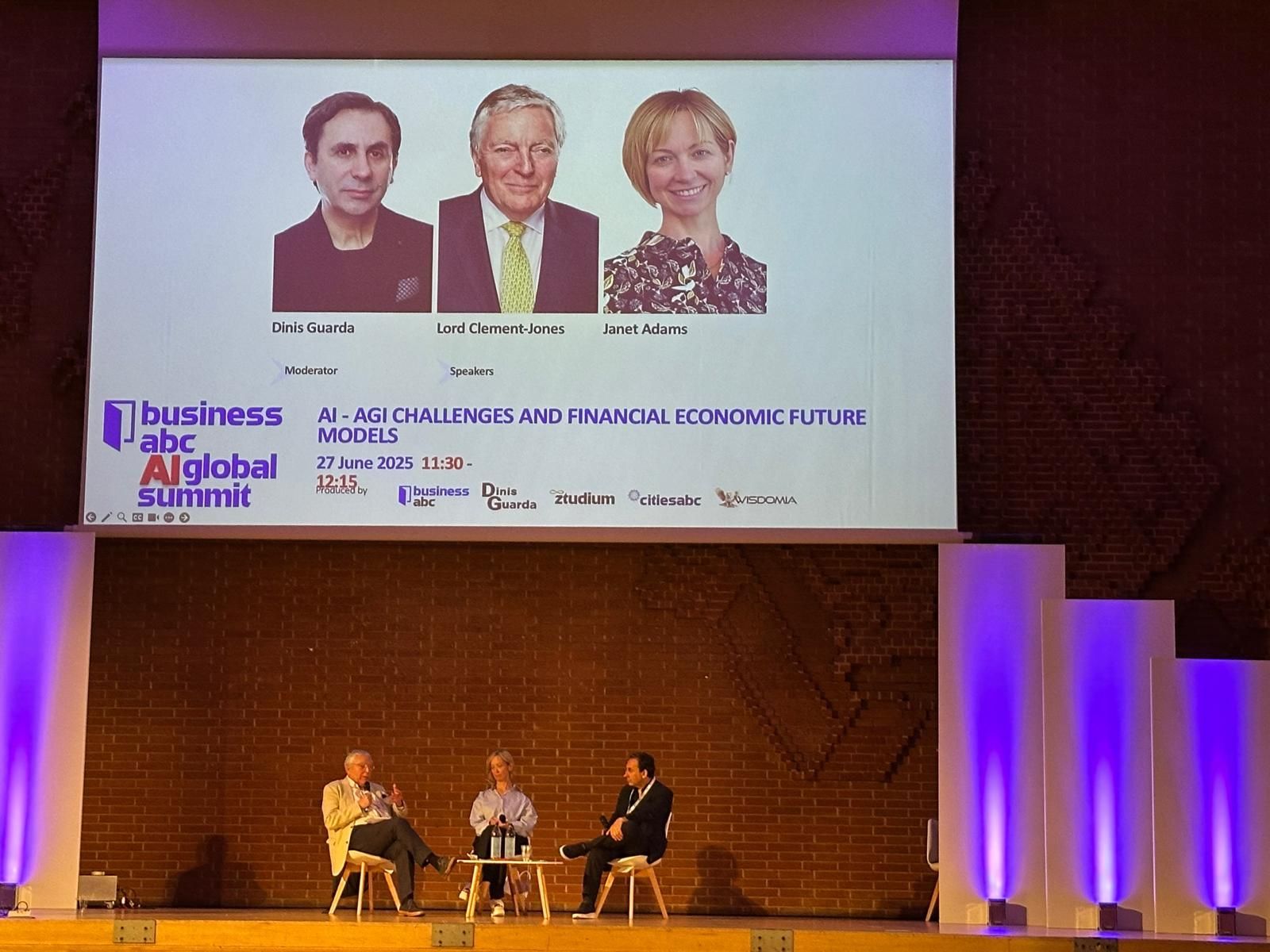
Creativity, Collaboration, and Digital Identity
Day Two leaned into the intersection of AI and the arts. Speakers such as Rupert Hofmann, Ghislaine Boddington, and Janet Adams explored AI’s potential to enhance—not replace—human creativity. The session titled “AI x Creativity x Human-Machine Collaboration” asked profound questions: How can cultural intelligence shape AI design? What is the future of embodied technology and digital identity?
Ghislaine Boddington’s keynote, a renowned futurist, researcher and curator, and the author of the BBC documentary Me and My Digital Twin, explored how the human body can become a living, interactive digital canvas. With three decades of experience in digital identity and virtual interaction, Boddington’s reflections offered both inspiration and caution, encouraging the audience to move from conversation to collective action.
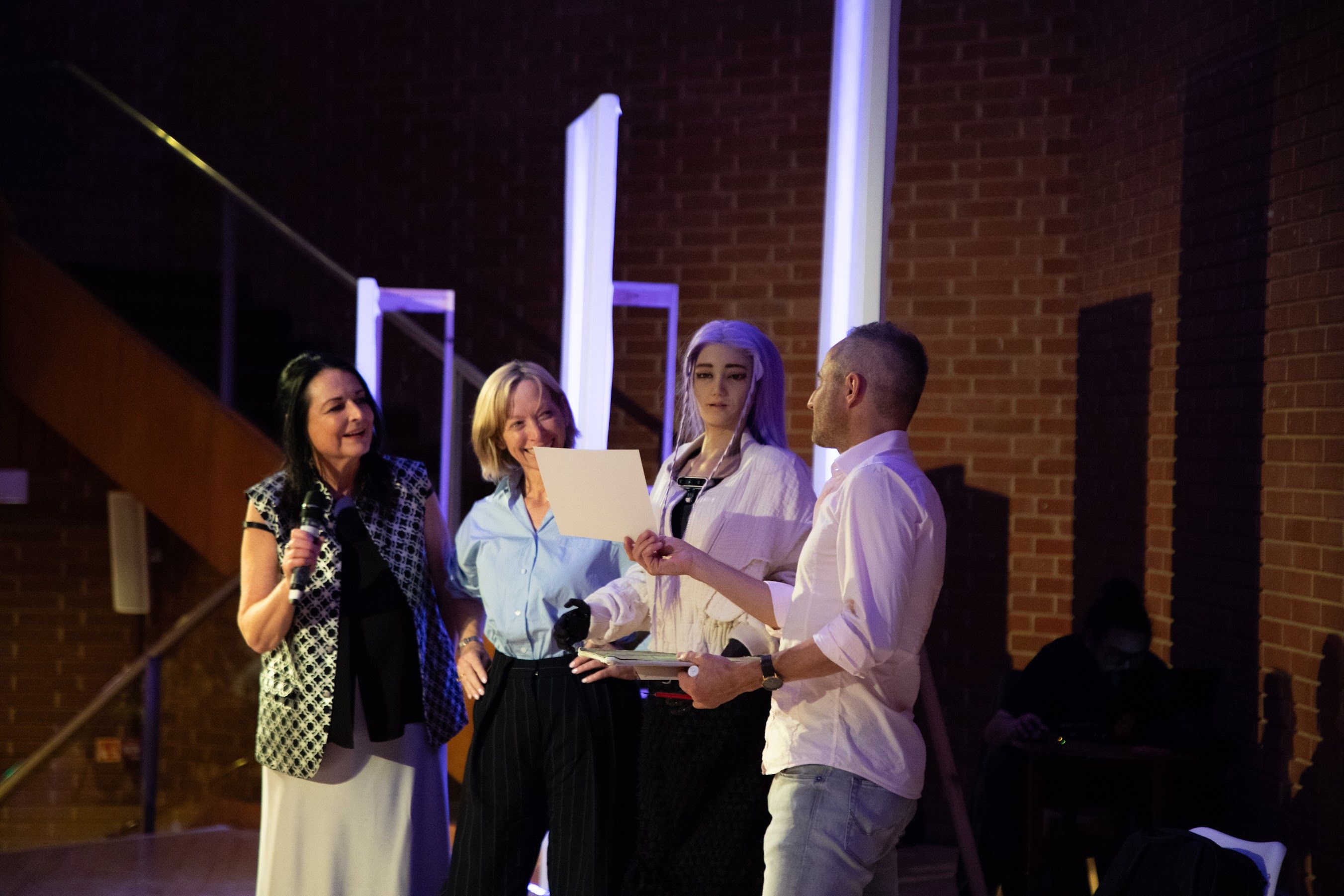
Rupert Hofmann live-sketched Desdemona, after which we witnessed a live performance streamed from Seattle that blended music, poetry, and AI interaction.
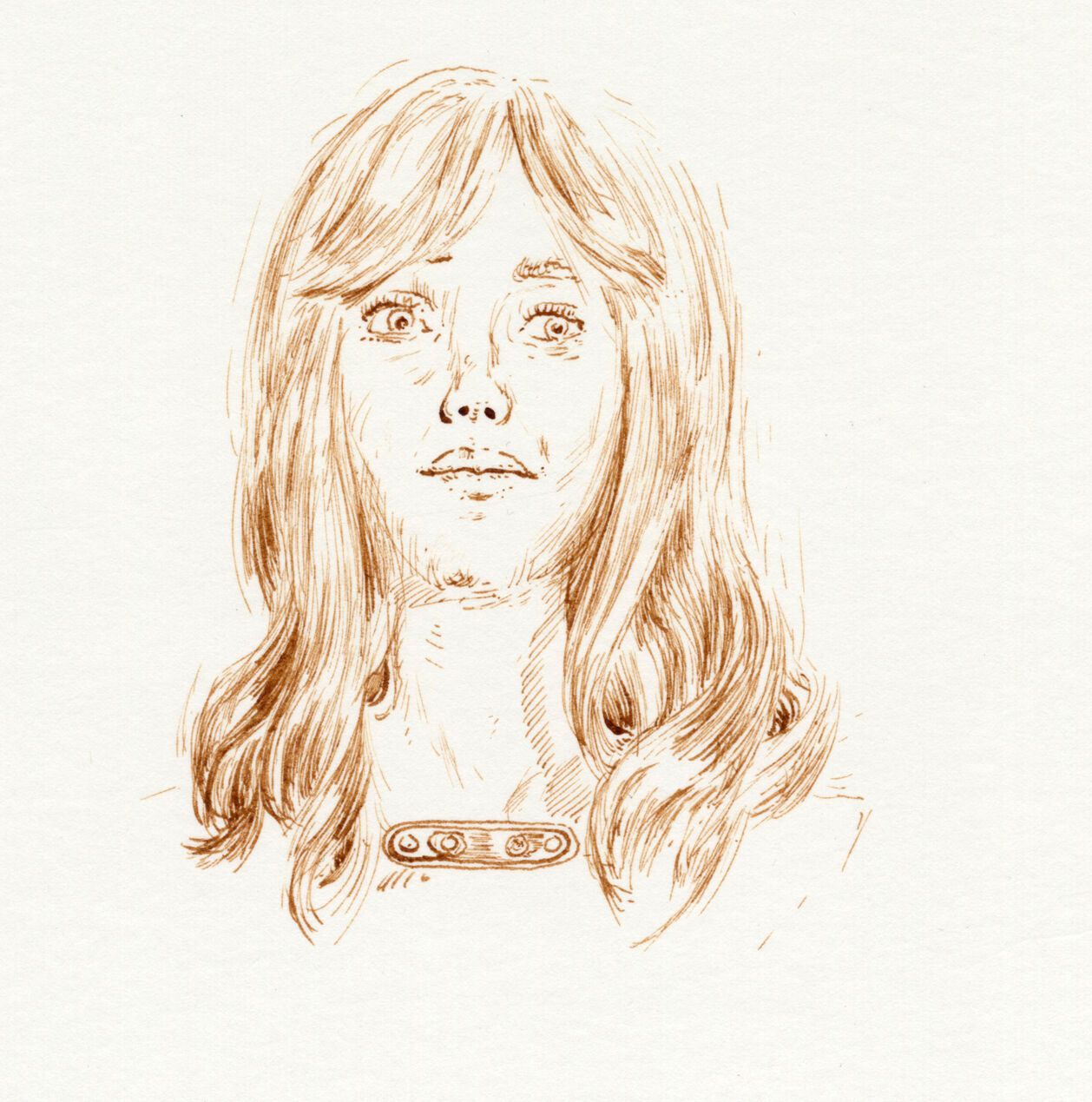
A soulful saxophone threaded through the performance, as Ben Goertzel’s voice interacted with Desdemona in a way that reminded me of Tom Waits—gravelly, haunting, and evocative. It was a bold testament to how AI can evoke new forms of emotional and creative expression.
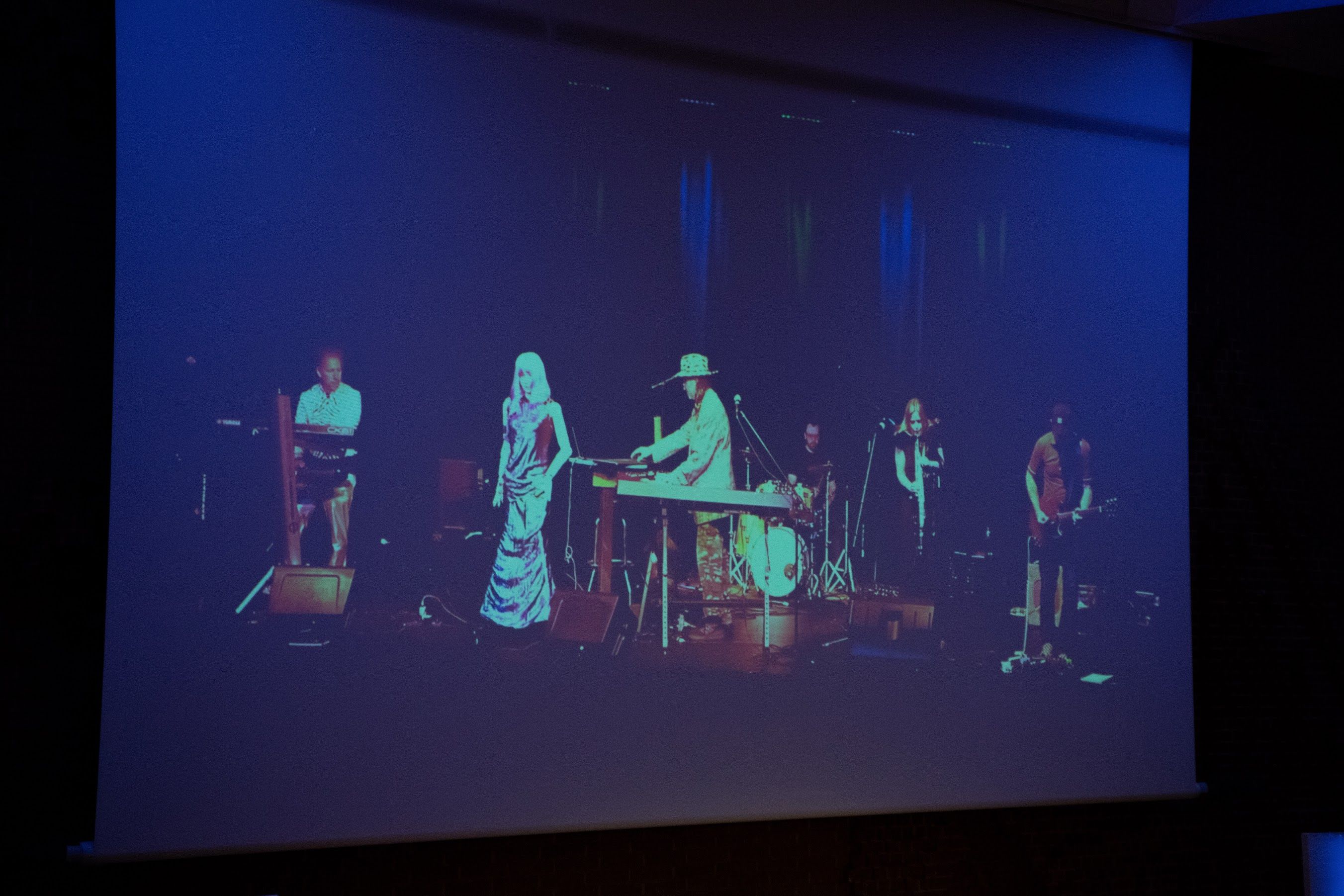
Both days concluded with sessions led by Aanshul Bafnaa, a spiritual coach, mystic, and modern-day monk. With over 17 years of experience bridging modern life and ancient wisdom, Bafnaa invited participants to consider AI as a mirror of humanity—reflecting our inner landscapes and ethical choices. His words served as a quiet, grounding counterpoint to the high-tech energy of the summit, reminding us of the enduring relevance of the spiritual journey.
"Spirituality is messy," she said. “AI, like a mirror, reflects who we are—and perhaps invites us to remember the" I am (ness) of who we truly are.”
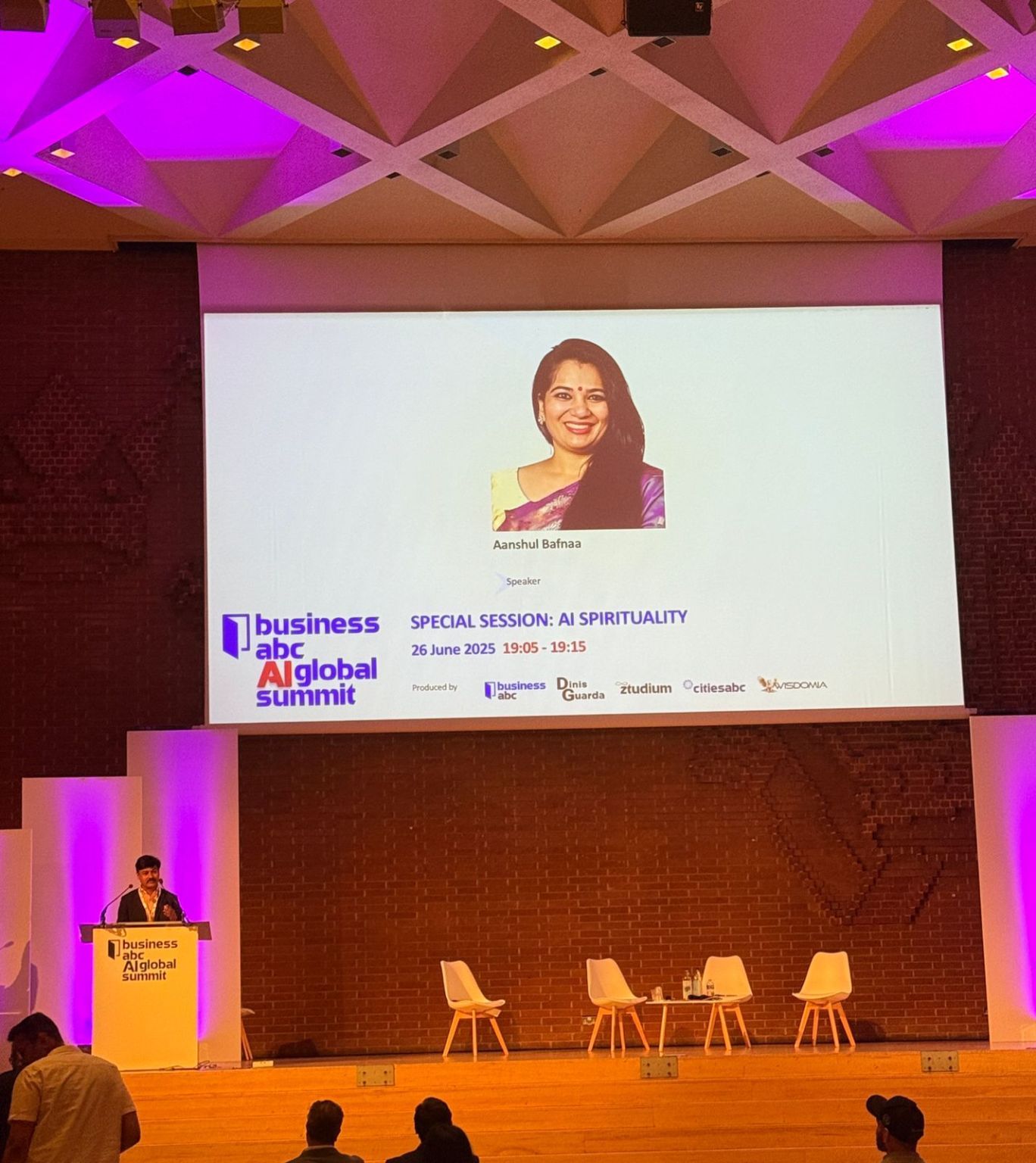
Final Reflections
The Businessabc AI Global Summit 2025 was more than a conference. It was a tapestry of innovation, inquiry, and imagination. It asked us not only to consider what AI can do, but who we must become as we co-create its future. As Dinis Guarda wisely said:
“Breakthrough innovation isn’t about replacing human creativity. It’s about removing human limitations.”
AI is stepping up as humanity’s mirror. What we choose to see—and how we respond—will shape our collective destiny. Let us look with clarity, compassion, and the creative will to build a world where the good, the beautiful, and the truthful can flourish.
previous
How to Get Better at Maths: A Journey from Fear to Fluency
next
Why Do We Forget Future Tasks? The Science Behind Prospective Memory Failures
Share this

Maria Fonseca
Maria Fonseca is an interdisciplinary educator, writer, artist and researcher whose work bridges the realms of academic knowledge, community engagement, and spiritual inquiry. With a background in Fine Art and a doctorate in creative practice, Maria has spent over a decade exploring the intersections of human experience, cultural meaning, and collective transformation.










